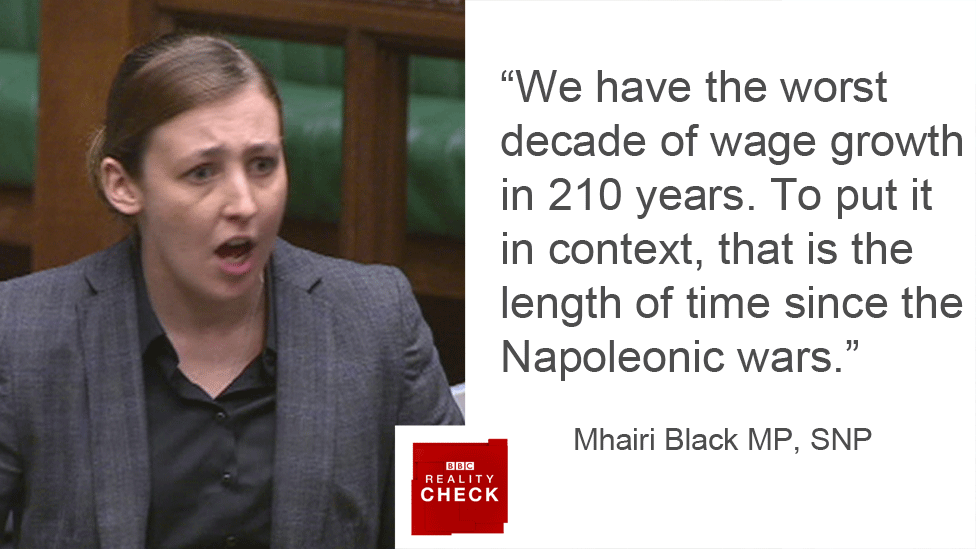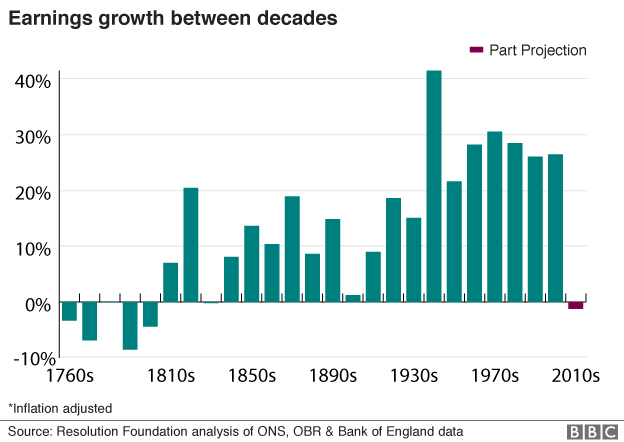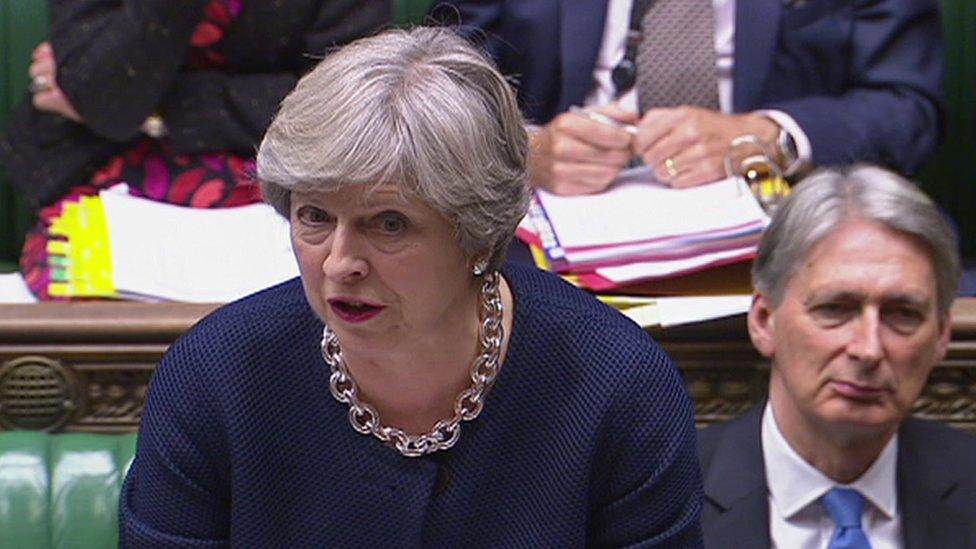Reality Check: Is pay growing at its worst rate since the Napoleonic Wars?
- Published

The claim: Pay this decade is growing at its slowest rate since Napoleonic times.
Reality Check verdict: Earnings figures from the 1800s are a bit sketchy. If you are considering any 10-year period then based on the best figures we have there have been two examples of worse wage growth. It is striking that the previous examples were all at times of major conflict.
The Scottish National Party (SNP) MP Mhairi Black made this eye-catching claim in the debate in Parliament about universal credit.
The claim that pay growth in the UK is at its worst since Napoleonic times was originally made by the the Resolution Foundation.
It used forecasts that average earnings adjusted for inflation in the current decade will turn out to be about 1% below their level in the 2000s.
Using long-term figures for average earnings from the Bank of England, external it then concluded that wage growth over a decade has not been so negative since the height of the Napoleonic Wars in the early 19th Century.

You may be wondering how they were collecting average-earnings figures back then. Clearly, they are not as accurate as the pay figures published nowadays by the Office for National Statistics, but considerable thought and effort has gone into collecting them, and they are the best available for the time.
"The early figures are based mainly on the earnings of building workers and agricultural workers, broken down by skill levels, collected from the records of institutions such as hospitals and schools that kept accounts," according to Stephen Broadberry, professor of economic history at Oxford University.
Greg Clark, visiting professor at the LSE's department of economic history, who collected many of these figures, confirms that the current decade is indeed worse than any since 1800 in terms of real-wage declines.
But he adds that if you take any 10-year period since then (instead of just looking at whole decades such as the 1820s or 1940s) you come up with two others that were worse for workers than the current decade is predicted to be: 1907 to 1917 and 1935 to 1945.
"It's only in war periods that real wages declined anything like they have been declining in the current decade," he says.
We're considering pay adjusted for inflation, so bad harvests in 1800 and 1801 and the Napoleonic Wars cutting off food imports, as well as forcing the government to raise taxes, all raised prices and meant wages were not going as far.
Another way of looking at the long-term real-wages figures is to look at the absolute level rather than the growth rate (taken from chart A48 on this link), external which makes it clear how much wages have gone up since the late 18th Century, but also highlights how unusual the past 10 years have been.



- Published18 October 2017

- Published13 May 2024
